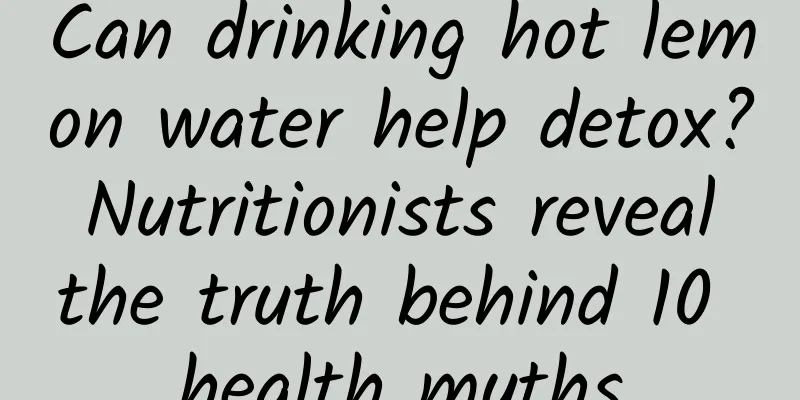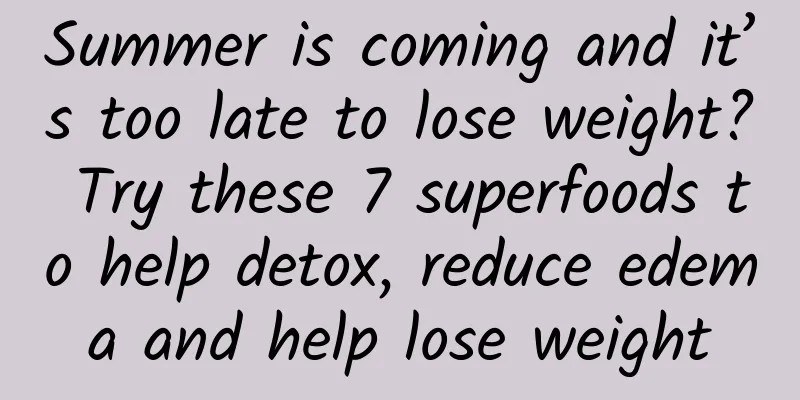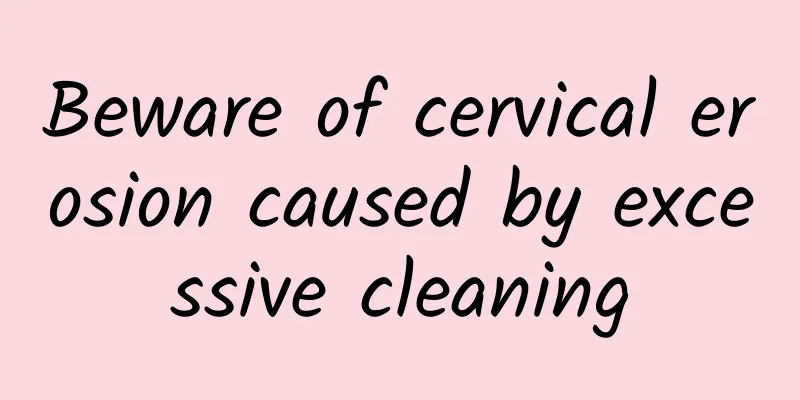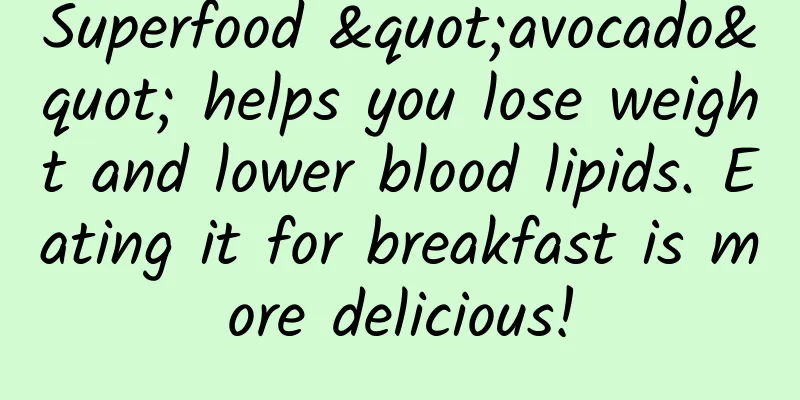Can drinking hot lemon water help detox? Nutritionists reveal the truth behind 10 health myths

|
What health decisions have you made recently? Give up sugar? Reduce carbohydrate intake? Want to get rid of belly fat by doing sit-ups every day? Well, you might want to think again. Registered dietitian Laura Thomas is founder of the London Centre for Intuitive Eating and author of Just Eat It. She believes that society's increasing obsession with the pursuit of "wellness" has led us to some very questionable health philosophies and trends. “I spend a lot of time debunking myths, explaining nutrition basics, challenging and refuting all sorts of nutrition nonsense,” she explains with a laugh. Meanwhile, people keen on a healthy lifestyle are happy to pay for it – the current wellness industry is estimated to be worth $4.2 trillion, according to the Global Wellness Institute. The reality is cruel. Many of the current popular health concepts have no scientific evidence, and some even go against science, but they are still very popular. Despite their dubious nutritional or fitness credentials, these trends, often backed by social media influencers or celebrities, retain huge appeal and mass appeal because they mix truth with promises of improved health, skin and life. After all, if there was a shortcut that guaranteed glowing skin or boundless energy, who among us wouldn’t want it? Isn’t it nice (and easy) to have excuses, foods you can avoid, and not have to stick to boring but effective health advice (eat more vegetables, exercise more, understand that your body and metabolism are different from others throughout your life)? Alissa Rumsey is a nutritional therapist and founder of Alissa Rumsey Nutrition and Wellness. She argues that we need to consider the damage these wellness myths can cause, as they can damage not only our physical health but also our mental health. Alissa Rumsey calls the wellness industry "dieting in disguise," arguing that demonizing certain foods creates certain dietary biases that can lead to disordered eating behaviors. Laura Thomas shares this sentiment: “I’ve seen a lot of people become afraid of certain foods because of pseudoscience, half-truths, and misconceptions about health and nutrition.” She believes that avoiding certain foods puts people at risk for malnutrition and, if left unchecked, for diseases such as osteoporosis. Below, Vogue reveals 10 health myths and half-truth health concepts that readers should be wary of. 1. A gluten-free diet is better for your health Celiac disease patients account for about 1% of the population and they need to strictly avoid gluten, but in the West, "gluten-free" has become a popular dietary trend. About 10% of Americans are now following the trend to eliminate or reduce their gluten intake, despite never having a medical condition that would require a gluten-free diet. Aside from those who make a lot of money from the diet industry, there seems to be little benefit in giving up gluten. (According to Alan Levinovitz, author of The Gluten Lie, gluten-free foods are 242% more expensive than their gluten-containing counterparts, leading to an estimated $7.59 billion market by 2020.) Claims of health benefits such as weight loss, increased energy, gut healing, and even autism treatment appear to be unfounded—the product of a few anecdotes, celebrities, and the media. About 6 percent of Americans have a gluten sensitivity (an autoimmune reaction characterized by bloating, diarrhea, weight loss, or abdominal cramping after eating gluten or wheat), but a 2015 NIH study found that 86 percent of people who thought they had a gluten sensitivity didn't actually have symptoms. If you are not sure whether you are allergic, you can try to stop eating gluten for a few weeks and then slowly reintroduce it. Your body will tell you the truth soon. But be aware that eliminating gluten from your diet may increase your risk of heart disease, according to a 2017 British Medical Journal article. "This is because gluten is often combined with other important nutrients, such as fiber and other plant-based nutrients, such as whole-wheat bread or barley," explains Laura Thomas. 2. Juice cleansing is a reliable way to detoxify the body Despite the hype and popularity, there’s no evidence that “detoxing” removes toxins or makes the body healthier — and that applies to the 5,861 juice and smoothie businesses currently operating in the United States, notes Alissa Rumsey. Juice first became popular in the 1970s but has seen an uptick in growth in the last decade, thanks in part to the rise of slim, dewy-faced celebrities and influencer bloggers like Gwyneth Paltrow and Deliciously Ella. The market for "juice cleanses" is expected to reach $250 billion by 2025. Their purported effects include boosting energy, strengthening the immune system, detoxifying, improving digestion and even curing cancer. But aside from the possibility of increasing the number of healthy gut bacteria (which was the finding of a study published in Scientific Reports), most of the claimed benefits are unsubstantiated and purely anecdotal. Alissa Rumsey says fresh juices are a great way to add more fruits and vegetables to your diet, but cleansing juices are low in calories, protein and fiber, which are all essential nutrients our bodies need to function. "Our liver and kidneys do a great job of clearing waste from our bodies," she says. Indeed, unless a healthy liver encounters extreme amounts of a chemical or toxin (such as alcohol), there’s no evidence that dangerous toxins build up in the body; in fact, a 2013 case review in The American Journal of Medicine suggests that juice cleansing may damage the kidneys. If you want to cleanse your body better, give it a rest and don't digest difficult-to-digest substances such as alcohol, drugs, meats, and highly processed foods! If you're looking to lose weight, some people find that cleansing juices can restore natural hunger signals, thereby helping to develop healthier eating habits. But be aware that this method of weight loss mainly removes water from the body, and once you start eating again, you will rebound. It may also make you feel hungry and have mood swings, leading to overeating after stopping detoxification. “This schedule reinforces a harmful cycle of restricting food, followed by overeating or bingeing, which doesn’t help develop healthy eating habits in the long run,” says Alissa Rumsey. So think of antioxidant-packed juices as a convenient addition to your daily diet that allows you to easily and quickly increase your intake of vegetables and fruits. 3. You need to drink eight glasses of water a day to keep your body hydrated Despite numerous studies—including one published in 2014 in the journal Nephrology Dialysis Transplantation—that completely debunk this health myth, some people still spread it. Dr. Rachel Vreeman and Dr. Aaron Carroll, co-authors of Don't Swallow Your Gum: Myths, Half-Truths and Outright Lies About Your Body and Health, believe the belief may have its roots in a 1945 National Research Council article that states an adequate amount of water for adults is 2.5 liters per day, but states in the last sentence that we already get that amount in our diet. The two doctors said: "If you ignore the last key sentence, this statement can be interpreted as drinking eight glasses of water a day." Laura Thomas holds the same view and said: "It is important to consume enough fluids, but juices and various teas can meet our needs. Unless you drink a lot of tea or coffee, the caffeine becomes a diuretic, otherwise our bodies will build up a tolerance to caffeine, so caffeinated drinks help fluid intake." Additionally, the body absorbs water from these liquid sources in much the same way (first broken down, then absorbed, such as the sugar in fruit juice). Water is an essential life force (and the best thing to drink), but how much you need to drink each day depends on your age, weight, where you live, and how much you sweat. Generally speaking, you can just drink water when you feel like it. 4. Eating carbohydrates will make you fat We know that completely cutting out carbohydrates can help you lose weight, but the fact is that carbohydrates themselves don't make you fat. "No single nutrient or food group will make you fat. In fact, scientists believe that 77 percent of our weight is determined by genetics (and a similar amount for our height)," explains Laura Thomas. This myth is based on the assumption that carbohydrates increase insulin secretion, and that insulin is the "fat storage hormone" that causes us to store calories as fat. This scientific theory, which sounds very reasonable, has led to millions of media and celebrity promotions of the "low-carb diet." However, this 2015 National Institutes of Health study suggests that's not true. We gain weight because we take in more calories than we burn, it's that simple. Of course, most people can lose weight on a low-carb diet because limiting carbohydrate intake reduces the range of food choices (such as pizza or cake) and thus reduces calorie intake. However, not all carbohydrates are created equal; they are a major source of energy for the body, and eating certain types of carbohydrates can actually help you lose weight, lose fat, and build muscle. In addition, research published last year in The Lancet Public Health and the National Institutes of Health suggests that neither a zero-carb diet nor a high-carb diet is ideal if you want to live a long and healthy life. Therefore, as I said before, a balanced diet is the key. 5. Sugar is the enemy of health Sugar is currently the number one dietary taboo, with pseudo-scientific social media messages and health books all describing how sugar is toxic to the body and mind. What we hear is that people are addicted to sugar, that eating sugar makes people fat, and that it causes ADHD, diabetes, and even cancer. In fact, there doesn't seem to be a lot of scientific evidence to support these claims, Laura Thomas explains: "It just has to do with the fact that every carbohydrate we consume, whether it's from oats, quinoa, beans, bananas or sweet potatoes, is broken down into glucose. Glucose is an essential nutrient for the central nervous system and red blood cells and is especially important during exercise. "To the human body, all sources of sugar are the same and are broken down in the same way. When it comes to sweeteners, less processed ones (like honey or maple syrup) contain more nutrients than more processed ones (like white sugar), but the amounts are so small that they are unlikely to have any observable effects on health. While sugar in moderation may seem harmless, consuming too much certainly carries the risk of unnecessary weight gain. However, eating too much pizza, cheese, or even quinoa can also pose this risk. In modern society, sugar is much more readily available than it was for our ancestors, so there are undoubtedly people who would benefit from eating less. However, this thing itself is not terrible, just pay attention to the amount you consume, such as drinking less sugary drinks, being careful about the hidden added sugars in foods such as high-fructose corn syrup, yogurt and bread. Again, everything should be done in moderation, and as Laura Thomas explains, it wouldn't feel good if we were binging on donuts all day, but we also know that when we limit our intake of sugary foods very strictly, it can amplify our cravings and make us feel out of control over these foods. 6. We need a variety of vitamins to stay healthy More than half of adult Americans take some kind of vitamin every day, but they may be wasting their money because there is no strong evidence to support the belief that taking vitamins won't make you healthier if you're already well-nourished. Vitamins are a group of substances required for normal cell function, growth and development of the body. There are 13 types in total: vitamin A, C, D, E, K, B1, B2, B3, pantothenic acid B5, biotin H, B6, B12 and folic acid B9. Most of them can be easily obtained through food. If there is a real vitamin deficiency, the human body may show some symptoms, such as: lack of vitamin B12 will cause fatigue, numbness in hands and feet, panic and forgetfulness. Alissa Rumsey says that unless you have a restricted diet or have absorption problems, you generally don't need to take a multivitamin. However, vitamin supplements are indeed recommended in certain specific circumstances, such as: multivitamins are recommended for people over 60, B12 is recommended for vegetarians, folic acid is recommended for women who are pregnant or trying to conceive, and vitamin D is recommended for people living in high latitudes in the northern hemisphere during the winter. The best way to get vitamins is from food, but if your diet isn't adequate, taking a multivitamin may be a good way to fill in the gaps. 7. Proper exercise can turn fat into muscle Hollie Grant, a personal trainer and founder of Pilates PT studio in London, said fat and muscle are two completely different substances with different properties and functions. Fat tissue is found just beneath the skin, between muscles, which are found throughout the body, and around internal organs such as the heart. Hollie Grant continued, "I suspect this misrepresentation comes from the common refrain that muscle weighs more than fat, which leads people to believe that we simply convert one to the other." In fact, muscle gain and fat loss are two separate processes: fat levels decrease when the body burns fat due to a lack of calories, while muscle grows due to use. However, they still affect each other, Hollie Grant explained: "People with more muscle mass will burn more calories to stay active, which may help speed up fat loss." 8. Hot lemon water wakes up the digestive system Many health bloggers, fake nutritionists and health celebrities claim that drinking a glass of hot lemon water every morning is good for your health. Its benefits also include stimulating human organs, awakening the digestive system, balancing the body's pH, and of course losing weight and detoxifying, but this actually has no scientific basis. "There's nothing magical about hot lemon water, but if you like the taste or it helps you stay hydrated, go for it," said Alissa Rumsey. "But the hype is false." Of course, drinking water is good for the human body. Adding natural flavors like lemon and nutrients like vitamin C, folate, and potassium can keep you sipping more, but as Alissa Rumsey says, "Any water, hot or cold, helps with hydration and digestion." Plus, hot lemon water can wreak havoc on your teeth, especially if you sip it first thing in the morning, as it can wear away at tooth enamel. That being said, coffee can also damage tooth enamel and cause digestive discomfort for many people, so if you're looking for an alternative to coffee, maybe starting your day with hot lemon water isn't so bad. 9. High-protein diet required Ever since the Atkins diet became popular in the early 2000s, the wealthy Western world's obsession with protein, as much as its obsession with low carbohydrates, has shown no signs of abating. This demand first started with bodybuilders, but the promotion of high-protein diets is now firmly entrenched in our social media, magazines, restaurants and supermarkets, and even in our daily lives, including foods such as high-protein chocolate bars and bread. Protein is an essential nutrient for growth and repair (hence recommended post-workout) as well as general overall health, but excessive intake appears to have negative effects, such as: it may lead to faster calcium loss from bones, adversely affect pregnancy outcomes, and may be toxic to people with kidney or liver disease. Alissa Rumsey says that like any diet, high-protein diets are not sustainable in the long term. Although it may help with weight loss at first, 90% to 95% of people who lose weight through diet will rebound, and two-thirds of people will gain more weight after rebounding. This type of yo-yo dieting (i.e. weight cycling) may be more harmful to your health than simply maintaining a higher weight. Depending on the specific level of activity each day, 10% to 35% of the calories consumed by the human body should come from protein, and protein is best from natural sources such as meat, poultry, fish, eggs, nuts or beans, which are more beneficial to the human body. 10. Fixed-point exercise can burn fat Can sit-ups give you a flat stomach? Can triceps exercises strengthen your upper arms? Hollie Grant said it was a waste of time. The idea behind spot-training is to be able to lose weight or build muscle in one area of the body without affecting other parts of the body. This myth persists because everyone wants it to be true, but unfortunately, according to research from the National Institutes of Health, it goes against the human anatomy. Hollie Grant said: "You can target a specific muscle and potentially increase its size and strength, but you can't burn fat in a specific area." Losing weight is like taking off a layer of clothing. You take it off as a whole, not just certain parts. We can't choose specific places to lose weight. Fitness trainer Joe Wicks says developing strong abs won't give you a six-pack if they're hidden beneath body fat. Moreover, targeted weight loss is not very effective because the muscles targeted by the exercises are relatively small and have little significance relative to the overall strength and energy consumption. Read the full article on VOGUE.com 90% of people have tried these ineffective weight loss methods. Professional nutritionists dispel seven common weight loss myths. Have you heard of these weight loss methods? Which ones are correct and which ones are incorrect? What the experts say Is there a myth about the most popular weight loss method nowadays, “intermittent fasting”? What professional nutritionists say For more exciting reports, please visit VOGUE website ※This article is authorized by VOGUE magazine and is prohibited from being reproduced without permission. |
Recommend
Ectopic pregnancy may cause abdominal pain or amenorrhea
Ectopic pregnancy is generally associated with ab...
Can low menstrual flow cause infertility?
It is a common misconception that light menstruat...
Does adenomyosis affect the uterus and rectum?
Adenomyosis is one of our common diseases, and it...
What are the symptoms of uterine fibroids? When is the best time to perform uterine fibroid surgery?
Multiple uterine fibroids, pregnancy longer than ...
What should patients with pelvic effusion pay attention to after laparoscopic surgery?
Pelvic effusion is a common gynecological inflamm...
Eating out is not “rough”! 90% of catering businesses do not provide brown rice
"Eating brown rice" is the simplest way...
Four typical symptoms of cervical erosion
Cervical erosion is a common disease that harms t...
What are the main symptoms of adnexitis?
Adnexitis is a gynecological disease with a relat...
Is it harmful for women to have abortion during breastfeeding? There are three harms for women to have abortion during breastfeeding
Some women get pregnant during breastfeeding, but...
Can bacterial vaginosis be transmitted to other people?
In recent years, due to poor hygiene, the rate of...
Imaging analysis of congenital absence of vagina syndrome
Women must correctly understand the symptoms of t...
Truth and Lies Can spot weight loss be trusted?
(Author: Park Soo-hee) People often wish to just ...
What is a benign chocolate cyst? What are the precautions for chocolate cysts?
As environmental pollution becomes more and more ...
What should I bring when I am having uterine fibroid surgery? What should I pay attention to when I am having uterine fibroid surgery?
What do I need to bring when I have uterine fibro...
Revealed: The hazards of four common acute pelvic inflammatory diseases
Acute pelvic inflammatory disease is a gynecologi...









